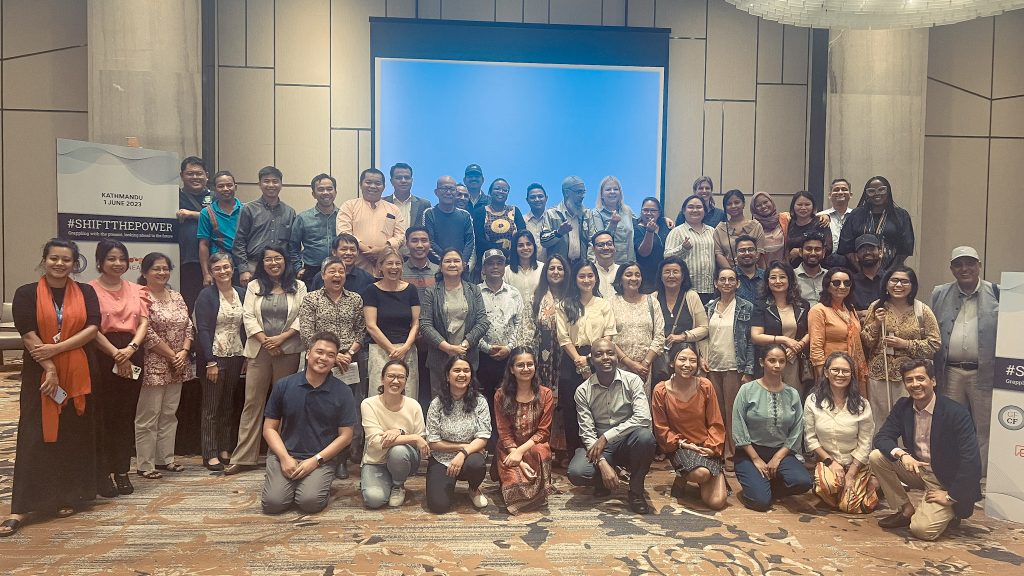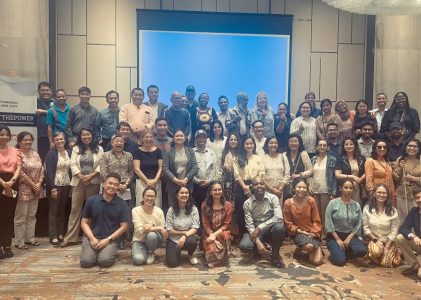

I ended 2022 with a health scare and I have spent the majority of 2023 so far preoccupied with the notion of collective care and solidarity in movement building. As part of my exploration, I have been reading Rest Is Resistance: A Manifesto by Tricia Hersey where she argues that rest should be a form of radical political resistance and that “to uplift rest from a community care ethic is to interrupt the dominant culture while giving power back to the people where it belongs.” While Hersey’s message is specifically targeted to black communities in the United States and rejects society’s hustle-grind culture, it resonates with me on the need for a cultural mindset shift in the philanthropic and international development fields, and why rest is important in the fight for liberation and larger systems-change.
Like Hersey, I believe that promoting collective care for activists – who drive much needed change – is essential for the sustainability and success of movement solidarity. From my work at the GFCF, working with partners from Palestine to Brazil, Uganda to Burkina Faso, the notion of care – seeing people as the biggest asset – is central to driving change. The work of re-imagining and achieving a new development system requires resources and energies that go beyond money and mere professional commitment. Activists who experience burnout and exhaustion will be less effective at developing innovative solutions that can sustain social movements.
Over the past few months, I’ve been having conversations with colleagues in Africa about the notion of self-care and solidarity in the context of re-imagining the current aid system. In these conversations there has been a general agreement that “Yes, self-care is important”, alongside a quiet acknowledgement that “We don’t do self-care very well as a sector.” In a blog by 2022 #ShiftThePower Fellow Eme Iniekung of GivingTuesday and Elizaphan Ogechi of the Nguzo Africa Community Foundation, they succinctly summarize the issue by stating: “We [the philanthropic sector] are often trying to do so many things until we forget ourselves.” Similar sentiments were echoed among participants at a recent meeting that the GFCF co-hosted with partners (Accountability Lab Nepal, NEAR Network, Peace Direct, Purak Asia and Tewa) on #ShiftThePower and community philanthropy that I attended in Kathmandu, Nepal in June 2023.

So, where do we go from here?
At the meeting in Nepal, Hari Sharma, Executive Director of Purak Asia and formerly a political advisor to the first president of Nepal, suggested that one way to start centering collective care as a political concept is to promote more intergenerational dialogues between activists of social movements. He explains:
“What happens when, for those of us who have been in the system for decades – who started social movements from personal convictions as volunteers and then got ‘professionalized’ along the way, who have been founders of small and big organizations – are so fatigued that we can no longer generate new ideas? There’s a sort of death that happens on many levels, and no one is talking about this. For me, self-care is really self-regeneration and what happens to these organizations when leaders leave. Generally, when leaders leave, they feel deserted in a way, all their years of hard work ending just like that. Where do they go to get a sense of themselves back after having given their all? We need to think about not only bringing in and supporting new activists to community work, but also how we take care of those who need to exit.”
I believe that promoting collective care for activists – who drive much needed change – is essential for the sustainability and success of movement solidarity.
Another way forward is to consider how to apply lessons from the work of feminist movements and funds, which have been thinking deeply about the notion of care – self-care, collective care and movement solidarity – and how it can be more effectively placed at the heart of a systems change agenda.
To effectively embrace care, we also need dedicated networks of support. Being able to resource, replenish and nourish our movements should, in my view, be a central pillar of reimagining an effective future system.
There’s undoubtedly much more to explore on this topic. In thinking about how we can continue to have these conversations more broadly and strategically, and how we can create spaces for learning and experimentation with new ideas about collective care, I would like to invite others to further explore these questions (among many others) with the GFCF in the lead up to, and at, the #ShiftThePower Global Summit in Bogotá in December.
Ese Emerhi is the Global Network Weaver at the Global Fund for Community Foundations.
